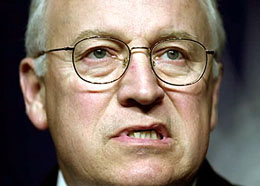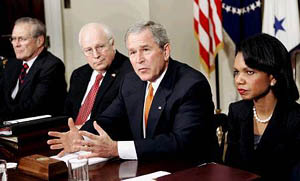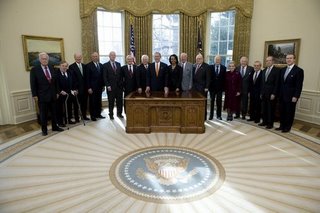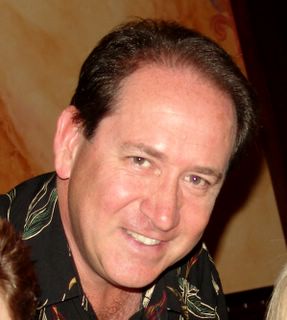9/11/01: Five Years Later We’re Worse Off



In the “you learn something new every day” category, I got a week’s worth of lessons in this morning’s newspaper. For one thing, I thought terrorists who kill innocent people are basically nuts looking for attention. The truth is nowhere near that simple. Another assumption was that Bush’s policies have put American lives increasingly in danger, but I was unaware of the possibility of a consensus of experts in agreement about this.
On the terrorists as nuts scenario: Rosa Brooks, Los Angeles Times columnist, reviews three new books on terrorism. One, What Terrorists Want, by Louise Richardson, has a nice explanation of the terrorist mentality and why the knowledge of that mentality is important:
Drawing on interviews and primary source materials from dozens of such movements, Richardson reminds us that despite the awfulness of their acts, most terrorists are neither "insane" nor even unusually cruel. On the contrary, their acts are rationally calculated, and most terrorists believe themselves to be altruistic and noble, Davids fighting Goliaths.
This is a simple insight with profound implications for counter-terrorism policy. The rhetoric of "evil" prevents us from understanding how terrorists think and alienates those who may be torn between sympathy for the political aims of such movements and
disapproval of terrorism as a tactic. And these are precisely the people Richardson says we can least afford to alienate. Although terrorist movements thrive when they are based in what she calls "complicit communities," they fizzle out when they lose community support. Thus, understanding the grievances of those drawn to terrorism is crucial to designing effective policies to halt its spread.By refusing to consider that terrorists may have any legitimate grievances, the Bush administration has radicalized moderates throughout the Islamic world and has wasted opportunities to deprive terrorists of the community support so critical to their survival. From the war in Iraq to the abuse of detainees, U.S. anti-terror tactics have backfired, driving more and more recruits into the arms of Al Qaeda.
Heinous terrorist acts of any kind are indefensible. With that in mind, it is difficult to reconcile willful ignorance of terorist mindset when some heroes of the most vocal anti-terrorists in the US fit that category--American Revolutionary War heroes who were snipers and indescriminate bombers; Jewish terrorists who bombed the King David Hotel in 1946, an act which paved the way toward UN acceptance of Israeli statehood. The question is a lot more complicated and important than just telling the lowest common denominator--American citizens--we have to protect against those "evil folks."
I knew calling terrorists “evildoers” was bizarre (what isn’t bizarre in the ignorant and muddled chatter of the inarticulate and decidedly arrogant POTUS?) – now I know that the use of simplistic terms is anti-productive.
On the front page of the Times was the glaring day-before-the 9/11 anniversary headline:
Is the U.S. Winning This War?The article enumerates reasons for its point:
WASHINGTON — Five years after Sept. 11, is the United States winning the war against Al Qaeda? President Bush says yes, but most experts — including many inside the U.S. government — say no.
…The war in Iraq has become a training ground for Islamic extremists from Saudi Arabia and other countries, and some have returned home with expertise in urban warfare and explosives.Beyond the misguided Bush/Cheney priorities of spreading forces too thin in the wrong places -- the lack of focus on the enormous and growing health care coverage fiasco; not developing an alternative-energy source plan — all of the last six-year’s poor leadership is setting back the potential for which Americans are famous: innovative solutions to problems. And the set-backs create new obstacles, bureaucratic and financial, that make taking the next step forward in progress more like digging out of a muddy hole.
…Wars in Iraq, Afghanistan and Lebanon have damaged the image of the U.S. in much of the Muslim world and made it easier for terrorist organizations to win recruits.
As for the 9/11 five-year anniversary: next time the republicans pat themselves on their backs for keeping the US homeland from suffering a terrorist attack in the last five years, think of the co-chairman of the 9/11 Commission report:
"Why have we not suffered [another] attack?" asked Lee H. Hamilton, co-chairman of the Sept. 11 commission, which exhaustively studied the 2001 attacks. "The honest answer is: We don't know. We simply don't know. Because we don't know the minds of the terrorists."--Los Angeles Times, 9/10/06
It’s time for a fresh group of people to be in charge, with better expertise and more open minds, who are willing to shelve the arrogance of power and roll up their sleeves, to find out what it really takes to improve lives. And that includes the lives of everyone on earth, not just the ones living in America.
The additional attention and money for nation-building and public relations is increasingly seen as a key to winning the war against Al Qaeda."It's not so much a question [of] whether you're able to …capture or kill or otherwise drive off" terrorists, said Cambone, the Pentagon intelligence chief. "That we know we can do. It's whether the confidence of those who stand in opposition [to terrorism] is going up … and that of the terrorists is going down.
"Then you're succeeding," he said. "And then the issue isn't how many successive terrorist cells you've undone. They will disband."—Los Angeles Times, 9/10/06

No comments:
Post a Comment
Comments signed Anonymous will not be published.